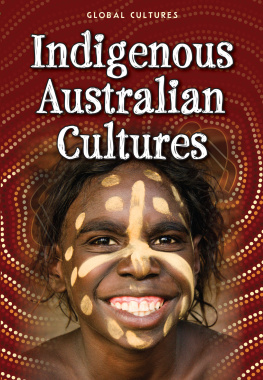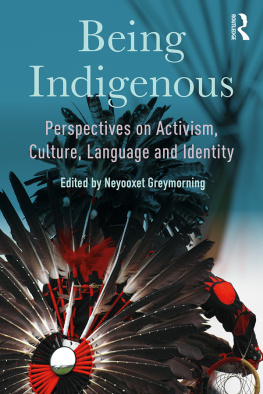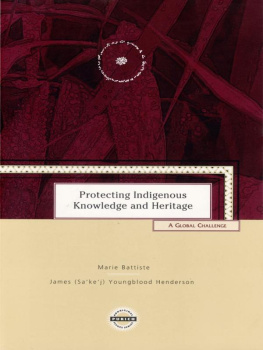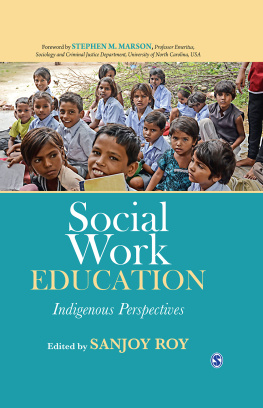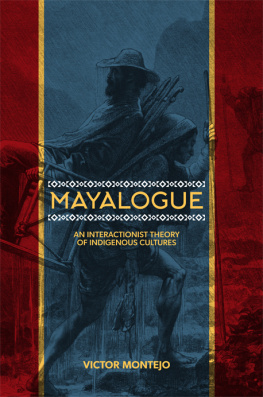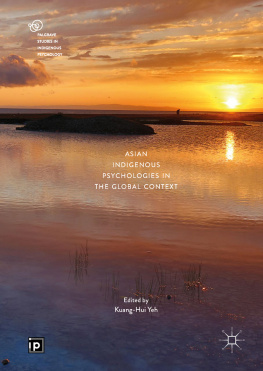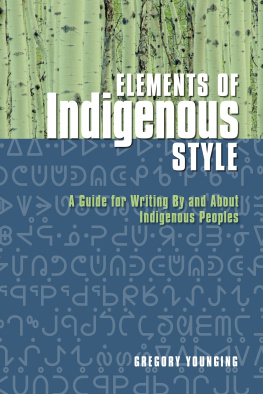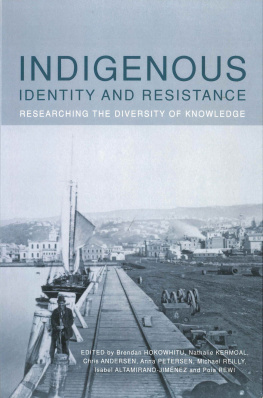
This edition published in the Taylor & Francis e-Library, 2005.
To purchase your own copy of this or any of Taylor & Francis or Routledges collection of thousands of eBooks please go to www.eBookstore.tandf.co.uk.
Copyright 2000 OPA (Overseas Publishers Association) N.V.
Published by license under the Harwood Academic Publishers imprint, part of The Gordon and Breach Publishing Group.
All rights reserved.
No part of this book may be reproduced or utilized in any form or by any means, electronic or mechanical, including photocopying and recording, or by any information storage or retrieval system, without permission in writing from the publisher. Printed in Singapore.
Amsteldijk 166
1st Floor
1079 LH Amsterdam
The Netherlands
British Library Cataloguing in Publication Data
A catalogue record for this book is available from the British Library.
ISBN 0-203-47956-4 Master e-book ISBN
ISBN 0-203-47999-8 (Adobe eReader Format)
ISBN 90-5702-484-5 (soft cover)
ISSN 1025-5869
Cover: Kantu smallholder tapping one of his rubber trees
Studies in Environmental Anthropology
edited by Roy Ellen, University of Kent at Canterbury, UK
This series is a vehicle for publishing up-to-date monographs on particular issues in particular places which are sensitive to both socio-cultural and ecological factors. Emphasis will be placed on the perception of the environment, indigenous knowledge and the ethnography of environmental issues. While basically anthropological, the series will consider works from authors working in adjacent fields.
Volume 1
A Place Against Time
Land and Environment in Papua New Guinea
Paul Sillitoe
Volume 2
People, Land and Water in the Arab Middle East
Environments and Landscapes in the Bild ash-Shm
William Lancaster and Fidelity Lancaster
Volume 3
Protecting the Arctic
Indigenous Peoples and Cultural Survival
Mark Nuttall
Volume 4
Transforming the Indonesian Uplands
Marginality, Power and Production
edited by Tania Murray Li
Volume 5
Indigenous Environmental Knowledge and its Transformations
Critical Anthropological Perspectives
edited by Roy Ellen, Peter Parkes and Alan Bicker
This book is part of a series. The publisher will accept continuation orders which may be cancelled at any time and which provide for automatic billing and shipping of each title in the series upon publication. Please write for details.
LIST OF MAPS, PLATES AND TABLES
NOTES ON CONTRIBUTORS
Amita Baviskar is a Lecturer in Sociology at the University of Delhi, India.
Alan Bicker is a Research fellow in the Department of Anthropology at the University of Kent at Canterbury, UK.
J.Peter Brosius is Associate Professor of Anthropology at the University of Georgia, USA.
Michael R.Dove is Professor of Social Ecology at the School of Forestry and Environmental Studies, Yale University, Connecticut, USA.
Roy Ellen is Professor of Anthropology and Human Ecology at the University of Kent at Canterbury, UK.
Holly Harris is a Ph.D. candidate in the Department of Anthropology at the University of Kent at Canterbury, UK.
Arne Kalland is Professor of Anthropology at the Institute and Museum of Anthropology at the University of Oslo, Norway.
John Knight is a Research Fellow at the International Institute for Asian Studies in Leiden, The Netherlands.
Andres B.Masipiquea is Dean of the College of Forestry and Environmental Management, and Professor in Forest Administration at Isabela State University, The Philippines.
Tania Murray Li is Associate Professor in the Department of Sociology and Social Anthropology at Dalhousie University, Halifax, Canada.
Manon Osseweijer is a Ph.D. candidate in the Programme for Environment and Development at the Centre of Environmental Science, Leiden University, The Netherlands.
Peter Parkes is a Lecturer in Social Anthropology at the University of Kent at Canterbury, UK.
Gerard A.Persoon is Director of the Programme for Environment and Development at the Centre of Environmental Science, Leiden University, The Netherlands.
Darrell Addison Posey is Director of the Programme for Traditional Resource Rights at the Oxford Centre for the Environment, Ethics, and Society, Mansfield College, University of Oxford, UK; and Professor, Departmento de Cincias Biolgicas, Universidade Federal do Maranho, Centro-So Luz, Maranho, Brazil.
Denyse J.Snelder is Assistant Professor at the Centre of Environmental Science, Leiden University, The Netherlands.
Nandini Sundar is a Reader in Sociology at the Institute of Economic Growth, Delhi, India.
PREFACE
Roy Ellen, Peter Parkes and Alan Bicker
The workshop on which the present volume is based was held at the University of Kent at Canterbury in May 1997, under the title Indigenous environmental knowledge and its transformations. It was funded by the Asia Committee of the European Science Foundation, and a brief report to the Foundation was published in the Summer Newsletter of the International Institute for Asian Studies in Leiden (1997, no. 13). The workshop was the third in a series organised under the auspices of the East-West Environmental Linkages consortium, an informal multidisciplinary network of individuals and institutions from Europe, North America and Asia.
The workshop was conceived as an opportunity to reflect critically on what is now widely described as indigenous knowledge (specifically, traditional, local or folk knowledge of the environment), and sought to address the way such knowledge has been used, and by equal measure abused, in different cultural contexts; incorporated into official knowledge, caricatured, misused and misunderstood, repackaged and sometimes re-invented, through, successively, colonial science and top-down development strategies; and more recently through farmer-first approaches and the contemporary politics of indigenous populations. As the introduction starts by pointing out, the workshop was not directly concerned to enter the practical and moral debates concerning the technical efficacy or value of indigenous knowledge. It took the empirical value of a great deal of IK for granted. By the same token it was not part of its remit to provide further empirical examples of IK in action or its applications in development, scientific or commercial contexts. There are many other books and articles which do this [e.g. Warren, Slikkerveer and Brokensha, 1995] and indeed many of the contributors to this volume have demonstrated their commitment to documenting the intricacies of local knowledge systems and promoting their practical applications (e.g. Posey, Dove and Ellen). Rather, the workshop was motivated by observing the exponential growth in the applications of IK (see Sillitoe, 1998) and a feeling that it was time to take stock of its growth, to take a critical look at its underlying assumptions, methodologies and concepts; to stand back and place it in some kind of grounded theory of ideas and practices.
All chapters in the present volume, with the exception of those by Peter Brosius and Peter Parkes, were prepared especially for the workshop, and appear here in a revised form. Earlier, and slightly modified, versions of the chapters by Ellen and Harris; Posey; and Masipiquea, Persoon and Snelder have appeared as working papers 1, 2 and 3 respectively of the EU funded programme, Avenir des Peuples des Forts Tropicales. The chapter by Brosius first appeared in


